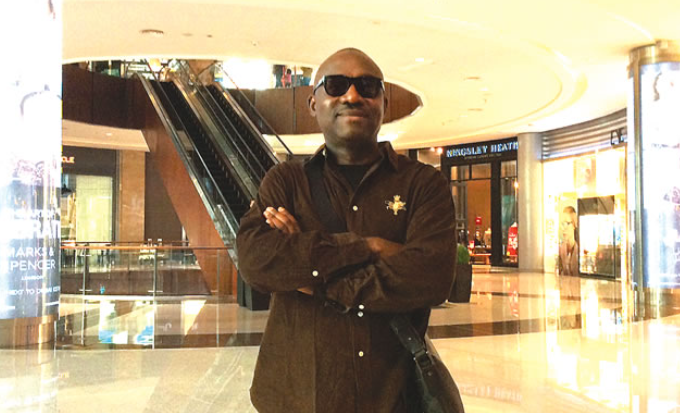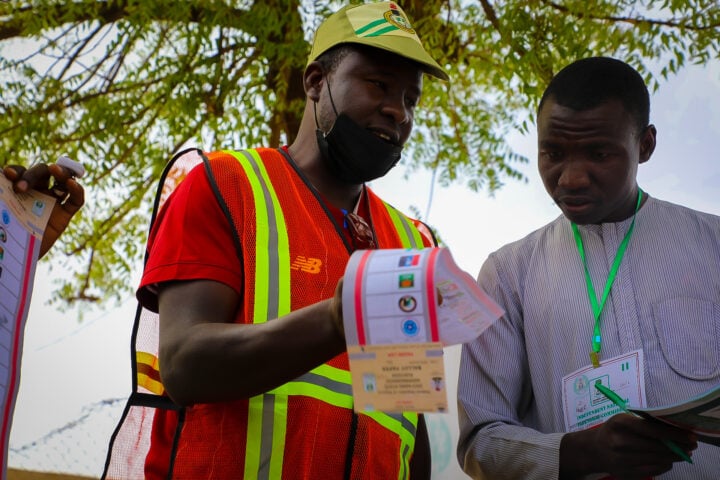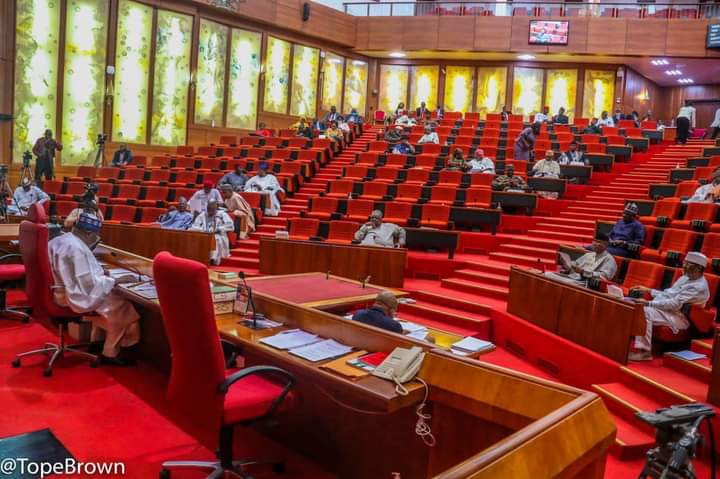I am not going to write about those who break bones and spill blood to impose themselves as leaders on the hapless people. I will not lampoon those who hoped upon hope expecting the Independent Electoral Commission (INEC) to deliver on a project on which it has shown infinite incapacity to handle.
I will not also write about the recent wave of sanctions on broadcast stations by the National Broadcasting Commission (NBC) for falling short of the standards of broadcasting as enshrined in the Nigeria Broadcasting Code; for it has become too commonplace to make sense or even news in my own little estimation. Nor will I be the one to begin to talk about the clear and present danger that may soon befall the broadcast regulator. The signs are too ominous to be ignored even by those without love for the nation’s broadcast sector. What I see in front can result in massive plunder and comprehensive emasculation of the broadcast industry.
Troubling as the times may be, my concern this day is to look at a couple of nations of the world and the way they align technology to enhance their national security and national interest and not fight personal battles. For some of these nations, technology is always about national interest irrespective of the government in power. They demonstrate the veracity of the statement, government is a continuum.
I will start with TikTok, that disruptive social media platform that sounds more like the sound of a wall clock. Since appearing under its present name in 2017, without prejudice to preceding history, the video sharing platform of snackable contents, owned by ByteDance and Chinese owner, Zhang Yiming, has gained traction globally, especially since merging with Muscical.ly in 2018.
Advertisement
By this year, TikTok has over 1.53bn users globally and the networth has jumped over $50bn. The young people like it especially. In this world of bullish narcissism, when social media personalities market even the most bizarre tastes and entertainers want every minute detail of their fantasy covered for public consumption, while politicians exhibit some of their latest acquisitions with stolen wealth, TikTok has enjoyed a fairy ride and accelerated populism. It has also earned a little bit of trouble that is affecting its footprints globally. It is not because of what TikTok is doing wrong, which really has not been proven by anybody, but by reason of provenance.
TikTok is Chinese, if you permit such directness. And here is the ailment. While labouring to emerge from a chequered history of being hated and overlooked by the rest of the world, China has really not been open enough to earn any trust from the global community. If the country is not playing war games, it is doing certain things too clandestinely which fall short of global acceptable standards.
For instance, in the summer of 2020, there was a boarder clash between China and India, leading to some deaths. TikTok became a direct victim with over 200 million people disconnected from its App immediately. The Indian government needed to send a clear message to an overbearing neighbour. It was a great loss.
Advertisement
Since then some other countries have taken stern measures against TikTok. They include: Afghanistan, Pakistan, Bangladesh, Indonesia, Canada, United Kingdom and a host of other countries.
But America leads the pack in a most standard way, arguing her position very vehemently, from the twin positions of national security and national interest. On the suspicion that the Chinese government could exploit its relationship with TikTok to mine data which the company collects from its subscribers and gain an advantage over the US government or spy on journalists who report China, President Trump signed an executive order to the effect that TikTok cedes ownership to American investors.
CNN reported in March this year that “China has national security laws that require companies under its jurisdiction to cooperate with a broad range of security activities.”
Trapped in some turmoil, TikTok chief executive, Shou Zi Chew, had said that the Chinese government had yet to make such a request, explaining that TikTok was not obliged to respond in the affirmative even if it did ask. TikTok doesn’t operate in China but the founding company, ByteDance, does.
Advertisement
But nobody is buying any of that. Not President Joe Biden who, although had rescinded the Trump executive order, is enjoying Congress support in dealing a decisive blow, which he did late last year, by signing a legislation prohibiting TikTok on federal government mobile devices. A number of states in America are following the prints of the Biden government on TIkTok. Meaning that if you work for the American government or some of these states, you are not allowed to allow TikTok on your mobile work devices.
Let’s take the journey back. The developed west always have their issues with China. Under President Donald Trump, those issues never abated but escalated to a new height. I had nursed the thought that a major cause of that sour relationship was the scramble for the leadership of 5G technology at the global level.
China had been bullish in the promotion of 5G and even giving discounted sales to encourage nations to try out the technology often described by some as a monster capable of unleashing unimaginable development.
For a time, Chinese companies, Huawei and ZTE had a great run across the world, most irritatingly even in Europe and the Americas. This wasn’t to last forever. Some countries believe that Chinese companies embed spyware in their equipment.
Advertisement
When Trump spoke on April 12, 2019, his position on 5G was very clear. “We cannot allow any other country to out-compete the United States in this powerful industry of the future. We are leading by so much in so many different industries of that type, and we can’t let that happen. The race to 5G is a race America must win, and it’s a race, frankly, that our great companies are now involved in. We have given them the incentive they need. It’s a race we will win,” he said.
Although the skirmishes between Trump and the Biden administration is so well known, the government’s position on 5G remains the same. The American government and its people must have a commanding say in the matter.
Advertisement
Biden has only throttled on from where Trump left off. Fortunately Biden has also enjoyed the support of the Congress in taking some crucial decisions. It is about national interest, not about anybody, party or even the President. It is about the American people.
The US Congress is putting pressure on the multi-agency body, the Committee on Foreign Investment in the United States (CFIUS) to quickly complete work on their investigations of TikTok and draw some conclusions. In a letter to Janet Yellen, Treasury Secretary and Chair of the Committee, Senators Richard Blumemthal, D, and Jerry Moran, R, expressed their fears over activities and safety of TikTok, and urged CFIUS to conclude its investigations and impose stricter sanctions and structural changes on the organisation. In this matter, the President, Biden, and the Congress are headed in the same direction but all in the American interest.
Advertisement
But what lessons do we learn as a people and a nation? The recent elections to elect new Assembly members in the country is so fractured and mired in sustained acrimonious controversies and accusations that it may prove difficult to expect anything good out of the lot. While I suggest that quality of choice across the nation will emerge with time, it will be suicidal not to encourage or challenge the new members to perform and rescue the nation in very challenging times.
While nations concern themselves with the way technology treats government and its people, Nigeria and its government have largely been concerned with how technology hurts the ego of some individuals who labour under the delusion that their hurt is the nation’s hurt.
Advertisement
So much has gone wrong under this administration. Could there be a flicker of hope that the new administration will offer something better?
My little appeal is that the new National Assembly members should work to redeem the image of the revered institution, engage in some rigorous study in their areas of interest, and be knowledgeable enough to initiate tech bills that can impact on the nation. They should be knowledgeable enough to challenge government appointees who intimidate them with false knowledge and defraud the people with bogus ideas and unverifiable submissions.
The lawmakers should do less oversight functions, visiting corporates and government agencies but should instead concentrate on the needful that can help the Nigerian people instead of helping a few pockets that may not help the nation when the journey gets real tough.
Views expressed by contributors are strictly personal and not of TheCable.
Add a comment







